




I am delighted to bring you the next issue of the Ocean Conservationist after an exciting few months!
From launching our third limited-edition gin bottle to making our very first appearance at the RHS Chelsea Flower Show, supporting two amazing gardens, it’s been a busy time, and we have loved every minute of it. Not only that, but we also headed over to Nice for the United Nations Ocean Conference, taking your voices to those with the power to make change!
We have some exciting new things happening too, with the launch of our brand-new Ocean Optimism campaign, designed to inspire collective action in homes for the health of our Ocean. Plus, we have started the UK’s largest subtidal seagrass restoration project, kicking off with engagement and consultation work.
We are also absolutely delighted that our Think Ocean Challenge has been recognised and endorsed by the United Nations Ocean Decade. Alongside 773 other programmes and projects, our Think Ocean Challenge has been recognised as a project that directly contributes to achieving the 10 Ocean Decade Challenges.
As a member of our community of Ocean Optimists, we’d love to hear from you! If you’ve got a minute, scan the QR code and let us know what you think about the magazine and being part of our community of Ocean Optimists.
Thanks for being here, and thanks for being an Ocean Optimist!

A story of Ocean conservation with our third limited-edition Plymouth gin bottle
Discover the beauty of our third limited-edition bottle and see how the story of Ocean restoration has been captured across the three bottles.
From the Coast to Chelsea, and back again
We are excited to share our experience and photos from the world famous Chelsea Flower Show.
A day in the life of an Animal Experience Supervisor
We spoke to our Animal Experience Supervisors, Chris and Tom, about what a day in the life of their role is like.
The UK’s largest subtidal seagrass restoration project
Find out more about our multi-year collaborative project to restore seagrass in the Fal and Helford Special Area of Conservation.

Editor: Catherine Ansell
info@oceanconservationtrust.org
01752 717294
@OceanConservationTrust
@OceanConservationTrust
Ocean Conservation Trust and b
Inspiring a global movement to promote and encourage a wave of positive behaviour towards our Ocean. Charity Number 1032491

Intergenerational codesign of novel technologies in coastal communities (ICONIC)
We bring you an update on the interdisciplinary ICONIC project we took part in to co design technologies across generations.
Are you an Ocean Friendly Home?
We are excited to launch a brand new, optimistic campaign that everyone can take part in!
Supporting the UN’s Global Sustainable Development Goals
Find out how we are helping to deliver the United Nation’s Sustainable Development Goals.
Your Voice at the UN Ocean Conference
Find out what we got up to at the United Nations Ocean Conference and how we made your voices heard.
Big Dreams for Ocean Literacy in Education
Find out what our Learning Team are doing to bring Ocean Literacy to the forefront of education.

After the success of two limited-edition Plymouth Gin bottles, we are delighted to continue making waves with our third bottle, and we think you will agree it’s the best one yet!
Inspired by the sea and our seagrass conservation work, the blue-tinted bottle features swirling leaves of seagrass and the colourful animals that call this habitat home. The inspiration behind the bottle is the vibrant sea life that Plymouth Gin’s donation helps us to protect!
As you know, we were delighted to be given the opportunity to support not one, but two gardens at the world famous RHS Chelsea Flower Show! After nearly a year in the making, showtime came around and we are excited to share some of our experience and the photos with you now…
From the Coast to Chelsea, and back again
When viewed as a series, the three limited-edition bottles tell a powerful story of Ocean restoration, evolving from calm, open waters to a flourishing marine ecosystem, filled with seagrass and thriving with sea life.
Our long-term partnership with Plymouth Gin is a powerful reminder that when we work together, we can create real and lasting change. Their ongoing support has helped us to expand the reach and impact of our seagrass conservation efforts, protecting these vital Ocean habitats for future generations.
Partnerships like this show just how much can be achieved for the Ocean when we join forces!

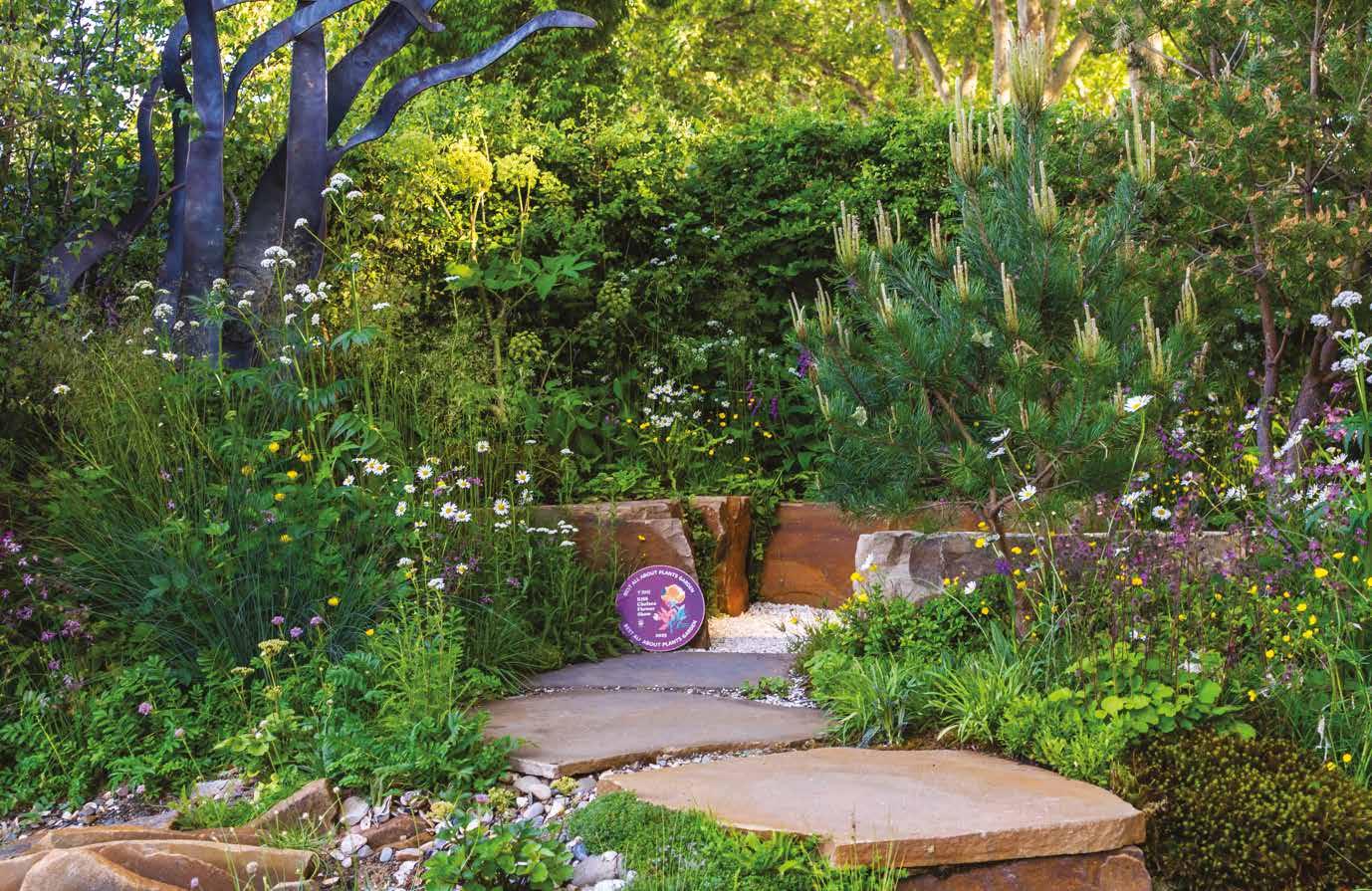
A few weeks before Chelsea Flower Show opened to the public, our Seagrass Aquaculture Technicians headed up to London to build the flow system for the tank that would house the seagrass plants at the front of the exhibit. As this was the first time ever that seagrass was to be featured at the famous flower show, the pressure was on to make sure it had a healthy environment for the duration of the show!
Everything, from chillers and pumps to filtration systems were assembled and installed on site, with the team spending around 13 hours a day to get everything built and securely in place!
Nearly a year in the making, growing seagrass in our laboratory, tending to it and keeping it healthy, a few days before the show the team were ready to take the seagrass all the way from the coast in Plymouth to Chelsea Flower Show! A 6am start, and a 380 mile round trip later, the seagrass was in its new temporary home at the world famous show, and it was looking great!
The seagrass was planted at the front of the exhibit, giving visitors a rare glimpse of healthy, thriving seagrass. Behind it, there were sandstone rock outcrops, a pebble beach, and a rocky seating area away from the hustle and bustle of Chelsea.
The Seawilding Garden was in the All About Plants category, which highlights gardens that prioritise unusual and specialist plants. We were absolutely delighted for seagrass to be featured, the only underwater flowering plant, and for the opportunity to share its importance in the fight against climate change with a wider audience. The garden not only won gold, but also best in category, a real win for beautiful seagrass!


Over the course of a year we had been working with Garden Designer Ashleigh Aylett, discussing how she could draw inspiration from the concept of Blue Mind to create a calm and serene garden.
The Blue Mind Theory describes the meditative calm we feel when we’re near water, and Ashleigh wanted to bring that theory to life in a compact, everyday setting - like a balcony. Her aim was to shape a garden that reflects the peace, clarity and connection people feel around the Ocean. The garden was filled with coastal plants in hues of blue and green. Ripple-effect cladding and the central water feature were designed to celebrate the sensory experience of water - the sound, the movement, and the way the light dances across the surface. Despite its compact scale, with the sound of the water, the gentle movement of the soft coastal planting in the breeze, and the textures of the materials, the garden felt immersive and calming.
The Blue Mind Garden was in the Balcony and Container Garden category, giving people lacking outdoor space the perfect inspiration. Again, this garden not only won gold, but also best in category, showing that people loved the concept of bringing Blue Mind into a garden!
We are delighted that following the show, the Blue Mind Garden has settled down its roots in the garden of our Centre of Ocean Excellence, the National Marine Aquarium. It has been reconfigured and installed into the garden as a permanent, public wellbeing space, which will offer a lasting sanctuary for the community.
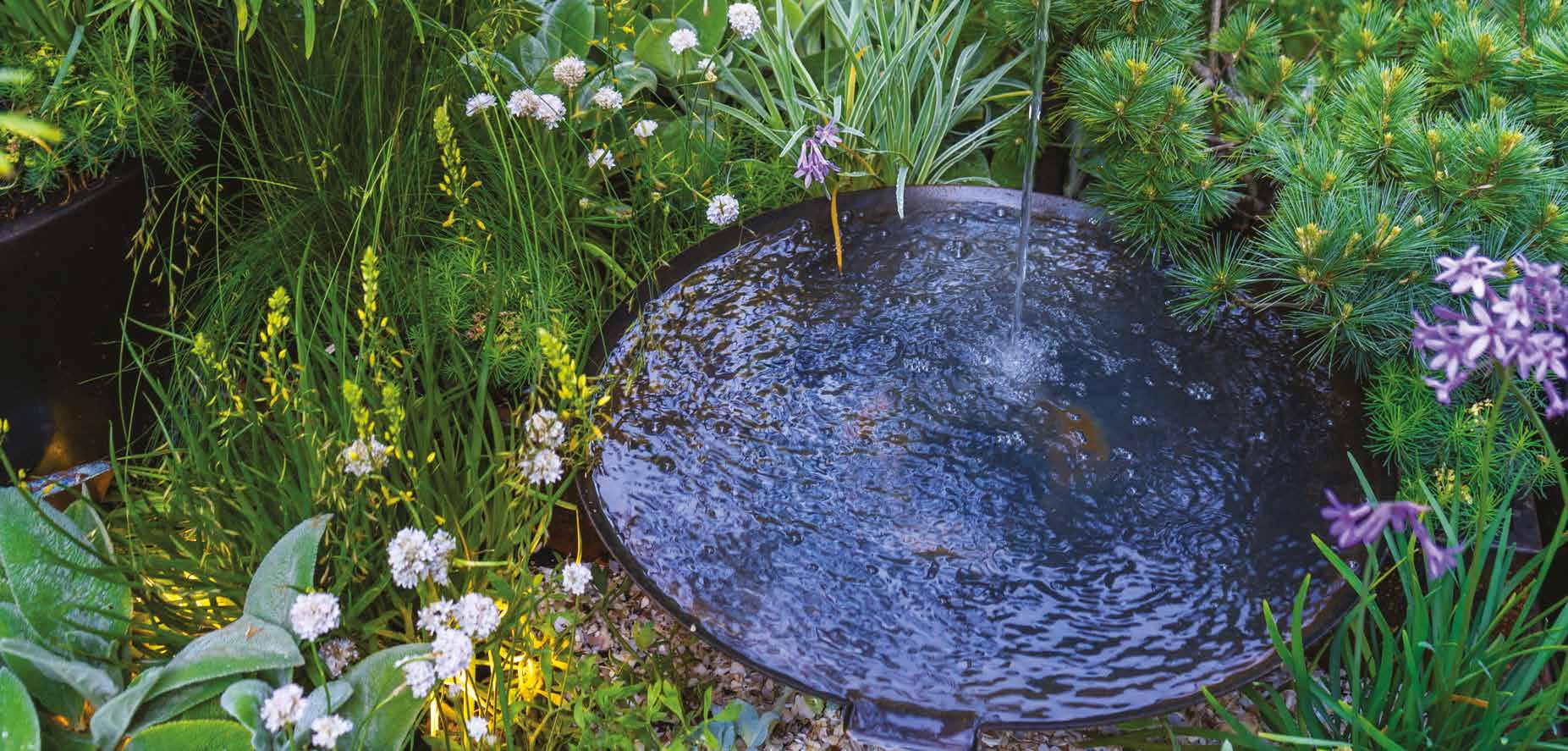
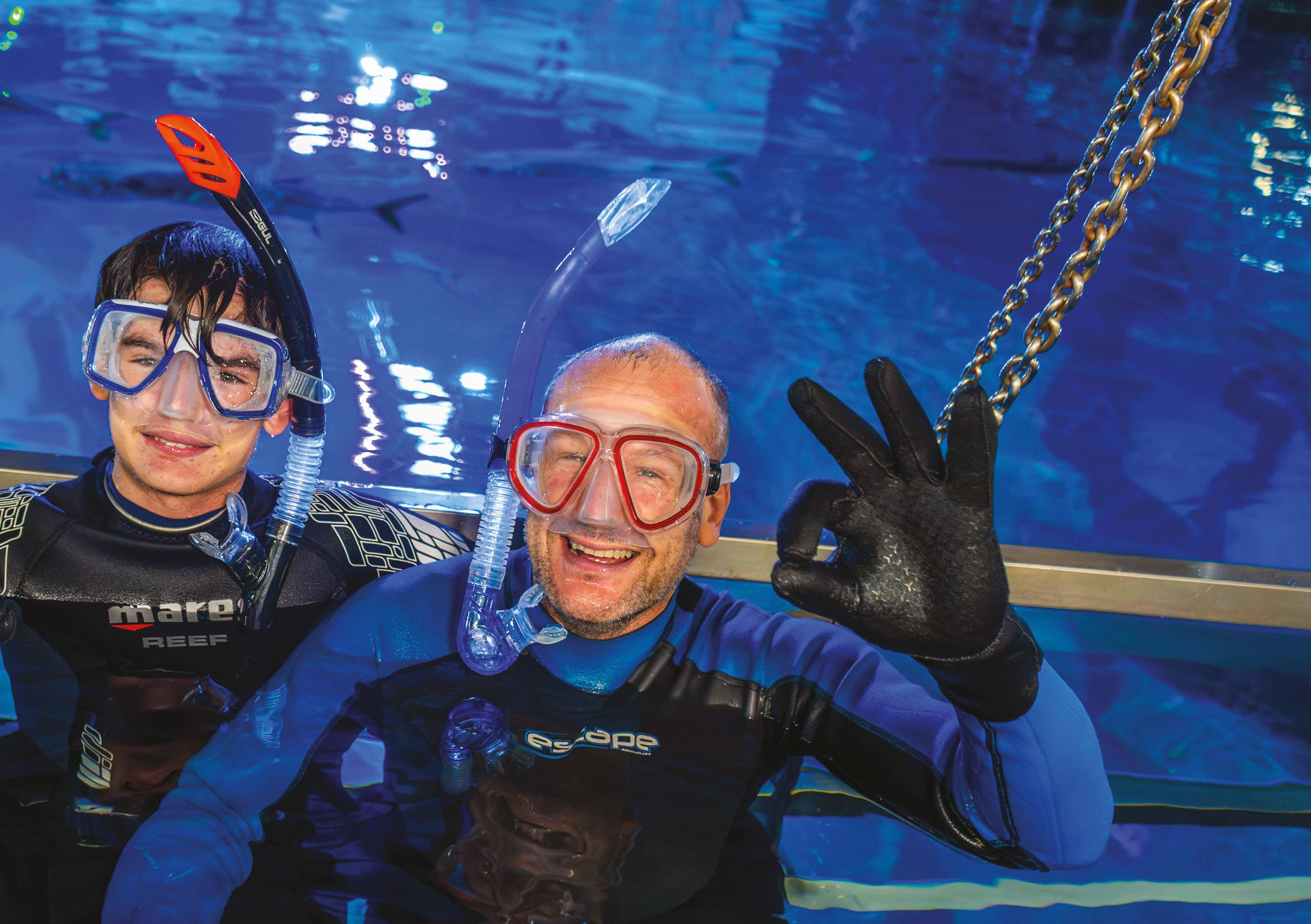
At our Centre of Ocean Excellence, the National Marine Aquarium, we run a number of experiences, providing a gateway to connect people to the Ocean, inspiring them to want to help protect the Ocean and the animals that call it home. We spoke to our Animal Experience Supervisors, Chris and Tom, to find out what a day in the life of helping people experience caring for and interacting with marine animals is like.
What does a typical day in the life of an Animal Experience Supervisor look like?
As Animal Experience Supervisors, we have a great variety in our day to day tasks. On a day we are running multiple experiences, we are busy running round, ensuring everything is prepared, set up and ready to go! We then meet the wonderful people who have come in to partake in our experiences. Each person has their unique and specific interests, and we try to tailor the conversation accordingly.
When we don’t have any experiences booked, we join the husbandry team! There are a lot of exhibits to take care of, and therefore a lot of maintenance to undertake. All of our animals have their specific wants and needs, and so we lend a hand as and when we can. We also join in with major operations, like moving fish into a happier home when they arrive, or even conducting daily main feeds in our larger tanks, like feeding the sharks! Our job can be very exciting at times.
As with any role, there is always the administrative side to keep up to date. Organising paperwork, responding to emails, answering phone calls and sending off post. It may not be the most exciting in comparison to our other tasks, but it is absolutely crucial work.
Despite having the same role, we come from very different backgrounds. Chris decided that he wanted to follow a marine science-based path in sixth form. He followed this career through college and university, placing himself in a very academic setting as he learnt all about the Ocean. From university, Chris gained an interest in applying himself to marine conservation, which is when he joined the National Marine Aquarium. Volunteering with the Ocean Discovery Rangers meant he could use his knowledge to engage and work with the general public. This is how Chris gained confidence in public speaking, and embraced the public eye, something he struggled with in the past. Chris joined the husbandry team when he stepped in to support the previous Animal Experience Supervisor, which eventually led to him taking on the position full time!
Tom started in Stratford Upon Avon’s Butterfly Farm, where he joined the team as a work experience student. Here he developed and nurtured an interest in all things wild. Since then, Tom has moved through academia, focusing on theatre and psychology. His passion for the Ocean and the peace he finds at the water’s edge, meant that when home in the Midlands, Tom worked on a boat yard.


Here, he learnt the crucial skills of community engagement and safety around the water, even when the weather is at its worst. Preparing him to work in Plymouth!
Tom started in the cafe at the National Marine Aquarium and loved the familial vibe of the team, so his name was put forward to Marcus, the Curator, when a position opened up on the Animal Experiences Team. Given his background in animal welfare, alongside public safety around the water, Tom was the perfect person for the job!

We both agree that one of the challenges is ensuring that Friday, the Green Sea Turtle, remains on best behaviour during the experiences, he sure is a naughty boy!
The main challenge is to ensure that the experiences are best suited to the customer at the time. Each person has their own story, and their own interests. Whether that be the on goings of the husbandry team, the animals themselves, or simply having the opportunity to go swimming in the animal kingdom. So, we strive to ensure that each experience is tailored to the customer/s on the day.
Aside from that, we also actively challenge each other to try and get the best review on Tripadvisor.
We both share quite similar perspectives on our jobs. Chris enjoys public engagement; seeing people’s interests come to fruition in their questions, their passion explored in their responses to the experience, and the opportunity to introduce people to blue spaces and the benefits of them.
Tom is excited by the opportunity to be in a position where we can provide a chance for people to see and experience a rare and unique thing. Giving people the ability to share a blue space with the residents and true curators of our Ocean is a privilege that should be recognised.
Which is your favourite animal experience to run?
Chris’ favourite is the Snorkel Experience, he enjoys the openness of the conservation and the ability to let the communication and engagement flow naturally. He also enjoys the enthusiasm and joy that comes throughout the experience, and seeing it first hand. He also finds it easier to engage the public due to the broader nature of the experience. You can open the experience to all questions and interests, not just the niche of a turtle, or a shark lover.
Tom finds the Turtle Feed to be the best. This is because he can link the experience to other areas of OCT’s work, such as habitat restoration. This very physical, boots on the ground method of conservation, is something that not a lot of people are privy to. So, alongside the benefits of feeding a turtle, we are able to provide learnings into some of our other marine conservation work.

Many people are led to believe in misinformation and stigmas around some animals. By stepping into their world, people can be provided with a different perspective on the animals, their associated habitat, and even aquariums as a whole.
For example, by being in the snorkel pen, customers can be introduced to the comfortable and quiet life of a shark. You see how curious and patient they are when respected, and how important they are for a healthy ecosystem. In contrast, Friday, the Green Sea Turtle, may appear cute, but he can prove to be quite a handful.
We run experiences to connect people with the Ocean, as we know positive interaction with a blue space provides a positive relationship with the Ocean. The associated positivity increases the likelihood of a want to protect these areas. The Ocean is our livelihood, and these experiences provide a way in which to fall in love with it.
Respect it. Show respect to the natural world and you’ll understand and gauge the world’s opportunities as something for all, not just us now, but those who are coming after us. By opening yourself up to new information, experiences and interactions, you’ll find a world worth saving. - Chris
Go and sit by it, take a few deep breaths. Enjoy what has always, and will always, be at your disposal. So long as you make the effort to do right by it. - Tom
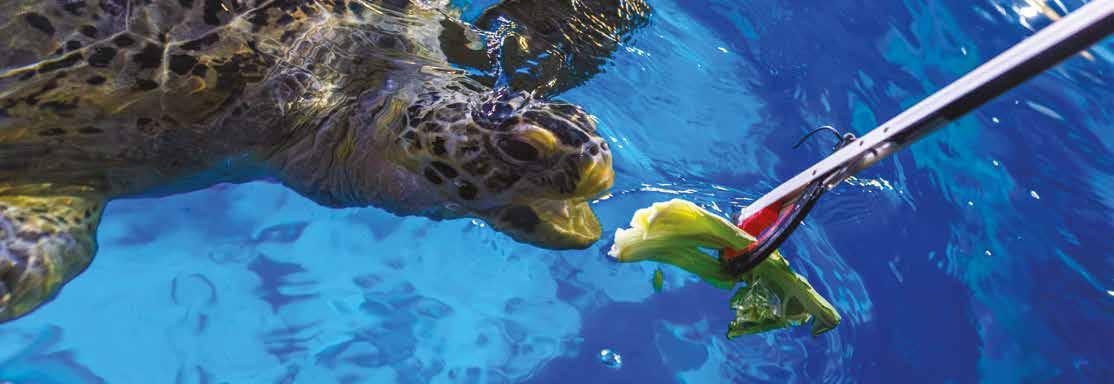
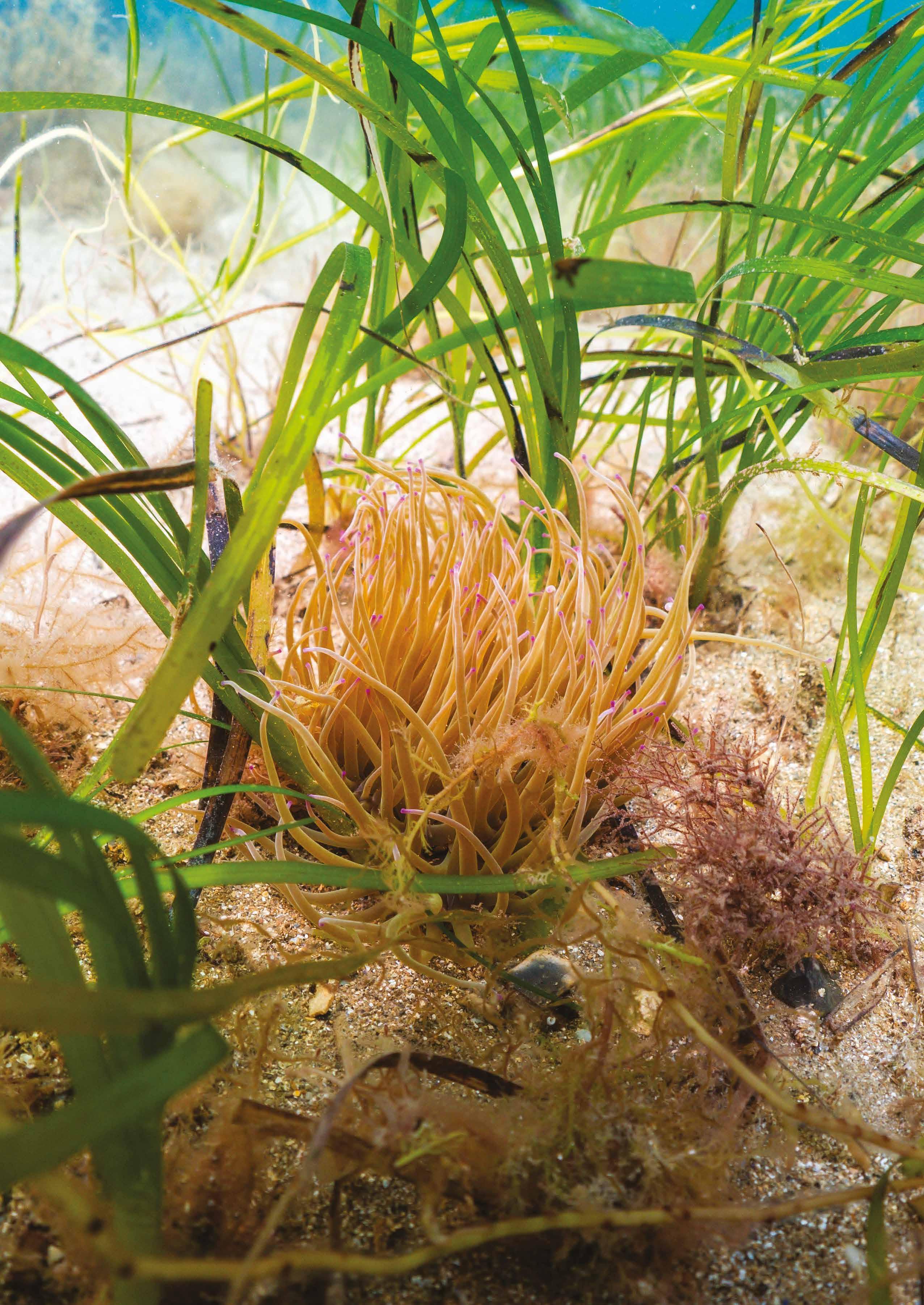
We are excited to be launching a multiyear collaborative project to restore 10 hectares of seagrass in the Fal and Helford Special Area of Conservation (SAC). It’s going to be the UK’s largest subtidal seagrass restoration project, and we can’t wait to get started!
Exciting plans are underway to restore seagrass meadows within the Fal and Helford Special Area of Conservation (SAC). These important underwater habitats support high levels of marine biodiversity, provide a vital carbon store, protect coastlines and offer serene spaces for recreation and wellbeing. Within the SAC, there are around 100 hectares - around 140 football pitches in size - of Zostera marina, also known as common eelgrass. While much of this remains intact, some areas are degraded and require active restoration to reach their full potential.
When restoration work begins, we will be using complementary methods to allow planting of both seagrass seeds and adult seagrass plants into the seabed. We will use our innovative HMS OCToPUS device to inject seed directly into the seabed, and our Seed Mat Technology to grow adult plants from seed.

The project has set an ambitious goal to restore 10 hectares of seagrass over the next three years; that’s around 14 football pitches in size! The restoration sites have been carefully selected and are already supported by our Blue Meadows Sensitive Habitat Marker Buoys, which designate Voluntary No Anchor Zones to reduce threats to these sensitive seabed habitats.
In preparation, the coming months will see partners undertaking detailed site monitoring, seed collection and community outreach. The project also provides a valuable opportunity for scientific research, with the University of Exeter facilitating data collection and analysis to assess the restoration success and ecological impacts. This research will offer important insights into carbon sequestration, species abundance, and the expansion of seagrass meadows, contributing to broader seagrass knowledge and future restoration efforts.
Community engagement will play a central role throughout. By connecting people with their local marine environment, the initiative aims to foster long-term stewardship of seagrass meadows. Community seagrass monitoring programmes and citizen science initiatives will develop as part of the project, ensuring that Falmouth’s community remains at its heart. Public awareness campaigns will also continue to highlight the importance of these habitats and promote sustainable behaviours throughout the wider SAC.
This restoration effort is part of a multiyear collaboration alongside Cornwall Council, the University of Exeter, Falmouth Harbour and Falmouth Marine Conservation Group. Each partner brings its own expertise to the collaboration, from ecological monitoring and habitat restoration techniques, to community engagement and local marine stewardship.
We will, of course, be bringing you updates as this exciting project progresses!

Over the past 3 years, we have been partners in an exciting interdisciplinary project that looked to explore whether co designing technology across generations can support digital inclusion.
As society becomes ever more digital, those without access to technology are at risk of social isolation, with those that live in rural and coastal communities being particularly impacted. This is often exacerbated by the exclusion of various groups, such as the elderly, from the design of digital technologies.
A connection to community, groups and activities in our neighbourhoods are essential for social inclusion and healthy ageing. This is why the ICONIC project was set up; to explore whether technology co-design can support digital inclusion for different generations in Devon and Cornwall.
At the OCT we see the benefits of using digital technology to engage and connect people to the Ocean who may not be able to access it themselves, so they can still experience the health benefits of the Ocean and feel connected to it.
The project recruited 97 participants, 42 younger and 57 older, to join 49 intergenerational workshops which focused on the co-design of one of four technology prototypes.
We were delighted that our work was included in two of the prototype technologies developed.
Underwater telepresence was centred around remote access to underwater spaces. A number of 360-degree underwater cameras were placed in the exhibits of our Aquarium to record videos that could be viewed on a VR headset. Participants were keen on exploring underwater spaces and recognised the therapeutic benefits of viewing underwater spaces.
They requested both a relaxing, passive version of the experience, as well as an interactive learning experience. The latter incorporates AI powered identification of marine species, providing users with interesting information about the local environment.
Social game was a multiplayer game themed around the conservation of seagrass and was designed with our Blue Meadows team. The game allows users to work together to improve water purity in a virtual underwater scene through planting seagrass, as well as clearing and recycling rubbish found in the environment.
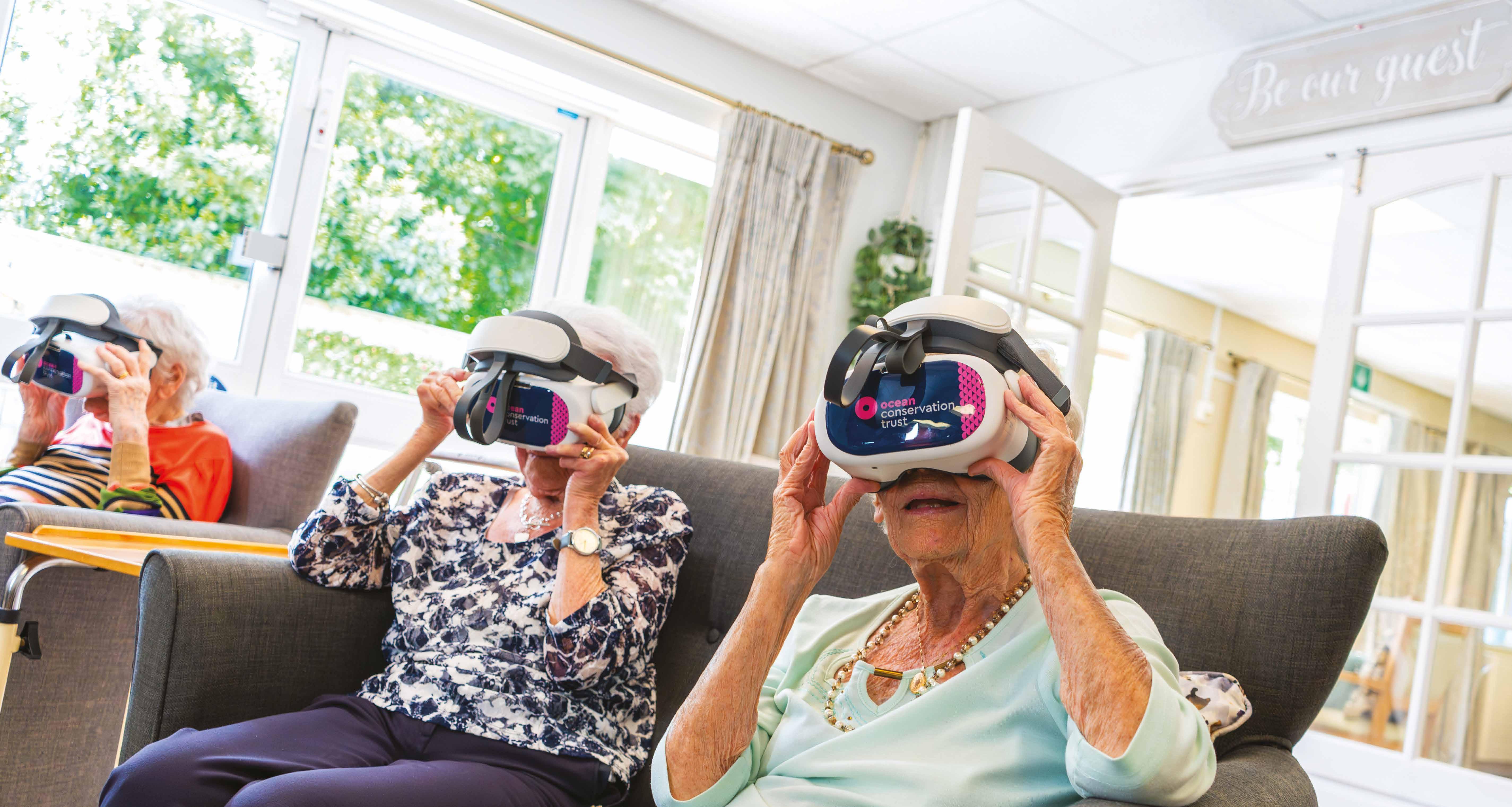
As the ICONIC project concluded, steps were taken to ensure a lasting, positive impact on the local communities and the partner organisations that collaborated to make this a success.
At the OCT we are delighted to have benefited from the legacy funding which will allow us to work on our next exciting project, The Ocean’s Voice. We will integrate the findings of ICONIC into the work we do using VR to connect more people than ever with the Ocean across the South West. Watch this space!
Everyone, everywhere is connected to the Ocean. We work to encourage everyone to take small, easy actions, every day to support a thriving Ocean. That’s why we have launched a brand new, optimistic campaign, that everyone can take part in – Ocean Friendly Homes! The aim is to help people take simple actions at home that can positively benefit the Ocean.
An Ocean Friendly Home is a space where small actions make a big difference. It’s about making mindful choices that are not only good for you, and your home, but also good for the Ocean. From using less water and energy, to swapping out single-use plastics and choosing Oceansafe products. It’s all about practical steps that add up. Transforming your home into a more sustainable and Ocean-friendly space is easier than you might think. It’s not about being perfect, it’s about making small swaps to move in the right direction. Many of these swaps will also help you save money, reduce waste, and live more comfortably.

You might be wondering why this matters. Whether your home is next to or far from the Ocean, the connection is always there. From the water we use to the waste we create; our daily choices ripple outwards. By thinking a little differently about how we live, we can create healthier homes and a healthier Ocean.
We have created an Ocean Friendly Home Planner, which will be your simple, practical guide to making small, positive changes at home that support Ocean health. Start by choosing what motivates you, track your habits over the summer holidays, and tick off Ocean friendly actions as you go.
As our community of Ocean Optimists, we know you already care about the Ocean, but we want as many people as possible to share their results with us so we can show the collective impact that is made when everyone takes small actions for the Ocean. We hope this will inspire others to become part of our growing movement of people taking action for the healthy future of our Ocean.

Last month, a team of OCT staff were involved in the United Nations Ocean Conference in Nice. This was the third United Nations Ocean Conference (UNOC), with over 190 countries attending including over 70 heads of state, supporting global efforts to help move forward the protection and sustainable use of our seas as enshrined under UN Strategic Development Goal (SDG) 14: Life Below Water.
Our Chief Scientific Advisor, Martin Attrill, and Head of Ocean Advocacy and Engagement, Nicola Bridge, tell us about the SDGs and our work contributing to them.
The underlying key goals of the OCT are aligned with the UN’s SDGs, and last month two of our local partners, the Universities of Plymouth and Exeter, were both ranked in the world’s top 100 institutions whose research impact most directly supports the SDGs. Global sustainable development is guided by these SDGs… so what are they and how does the OCT directly help to deliver them and thus, through our mission, contribute to a better world?
The UN Sustainable Development Goals (SDGs) were created at the landmark global Sustainable Development Conference in Rio de Janeiro in 2012. The objective was to produce a set of universal goals that met the urgent environmental, political and economic challenges facing our world. Developed from the Millennium Development Goals that started a global effort to tackle poverty, the SDGs take this further, resulting in a set of 17 interconnecting goals ranging from Life on Land and Below Water, through climate action and ending poverty, to social goals such as quality education for all and gender equality.
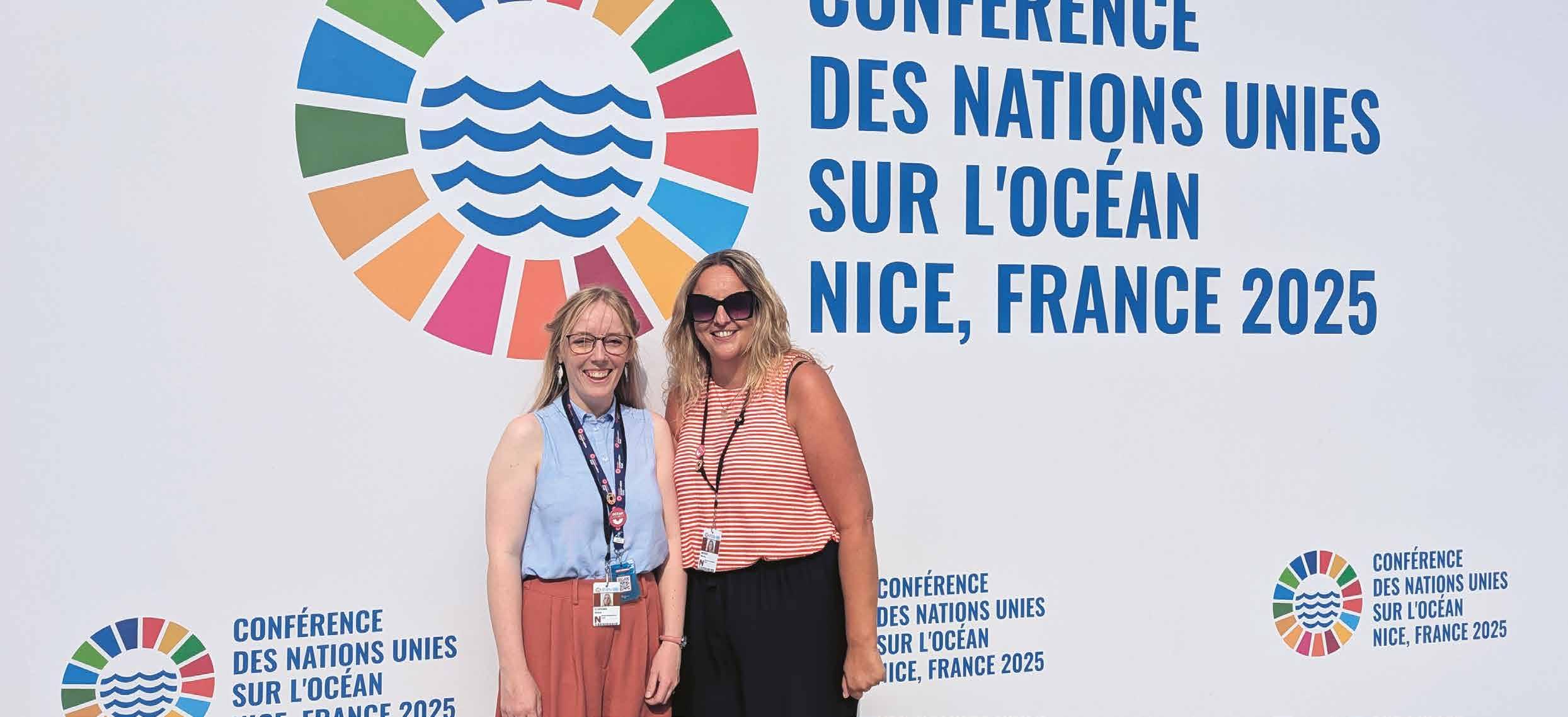

Fundamental to the work of the OCT is of course SDG14 - Life Below Water, which is the central theme of the UN Ocean Conference. The aim of this goal is to “Conserve and sustainably use the Ocean, seas and marine resources for sustainable development”.
UNOC is the place where SDG14 is discussed with a real focus on Member States agreeing treaties for upping the level of protection for our high seas (the main bit of the Ocean beyond national jurisdiction) and removing the most damaging activities from protected areas.
However, there is a potential issue with having this specific SDG - it can be seen as a box where all activities around the Ocean are placed with the other 16 SDGs often ignoring the influence or role of the Ocean in delivering the whole suite of SDGs. It is also the least funded of all the development goals… the Ocean being rather sidelined, not for the first time in global discussions. We know that a healthy Ocean is an enabler for all of the other goals; without healthy
Life Below Water and Life On Land, there would be no platform for human society and the goals relating to our way of life to have a chance of success: these two SDGs are fundamental to human existence on the planet.
The OCT is unique as an organisation in focusing on two different but entirely interconnected parallel areas: habitat conservation & restoration and Ocean engagement, citizenship and literacy. By recognising and supporting the fundamental links between our behaviour and the success of our restoration efforts, we can tackle both the key goal of SDG14 but also bring more people to connect with the Ocean, remove barriers to their interaction to the sea and start to see many benefits flow from the Ocean into society. Therefore, we can help support a range of other SDGs and link them to the health of our Ocean, making us quite different from most other Ocean-centric organisations.
How OCT
Our Blue Mind and Ocean for all programmes contribute to positive mental health and wellbeing by supporting physical and digital access to the Ocean, centred around making the Ocean accessible to all no matter where people live.
One of the key outputs of the Ocean Conservation Trust is to provide quality, lifelong learning opportunities, using the Ocean to deliver all subjects of the curriculum in an exciting and interactive way.
Our Think Ocean Challenge and Ocean Friendly Homes programmes are designed to help people make small, easy changes in their lives that benefit the Ocean and help them feel empowered that their small changes are collectively making a big difference.
Our Blue Meadows habitat restoration work strives to support vitally important seagrass meadows that absorb and store vast amounts of carbon. Communities are placed at the heart of our mission, promoting sustainable behaviours and equipping them with the tools and knowledge to protect these habitats for future generations
Our work is centred around people and positive action, making the Ocean accessible and connecting as many people as possible to it so they help us to protect it. We are doing this at all levels, from communities through our engagement work to governments through our Motion for the Ocean, which helps local and national governments take action to improve Ocean health.
We are very proud to be part of a charity that works at so many different levels within the UN Sustainable Development Goals, while having its main focus on creating a healthier, thriving Ocean for the benefit of all.

As you know, we recently attended the United Nations Ocean Conference in Nice, and what a week it was!
We joined over 14,000 attendees of the UN Ocean Conference, talked with some of the 100,000 participants that were in the public Ocean arena, known as “La Baleine” or “The Whale”, and interacted with political representatives from 175 United Nations Member States. It was a week packed with action from everyone who attended.
We took your voices with us and spoke up where you told us to. Over 600 of you took our Think Ocean Challenge in the last year. We asked what top 3 things you wanted decision makers to know about during the conferences we attend in 2025. Over 50% of you felt that these 3 issues were the most important to share with decision makers:
• Every child at school should have the opportunity to learn about the Ocean
• The Ocean has a vital role in the climate and biodiversity crisis
• Ocean pollution – its impacts and the role people’s behaviour can have for positive change
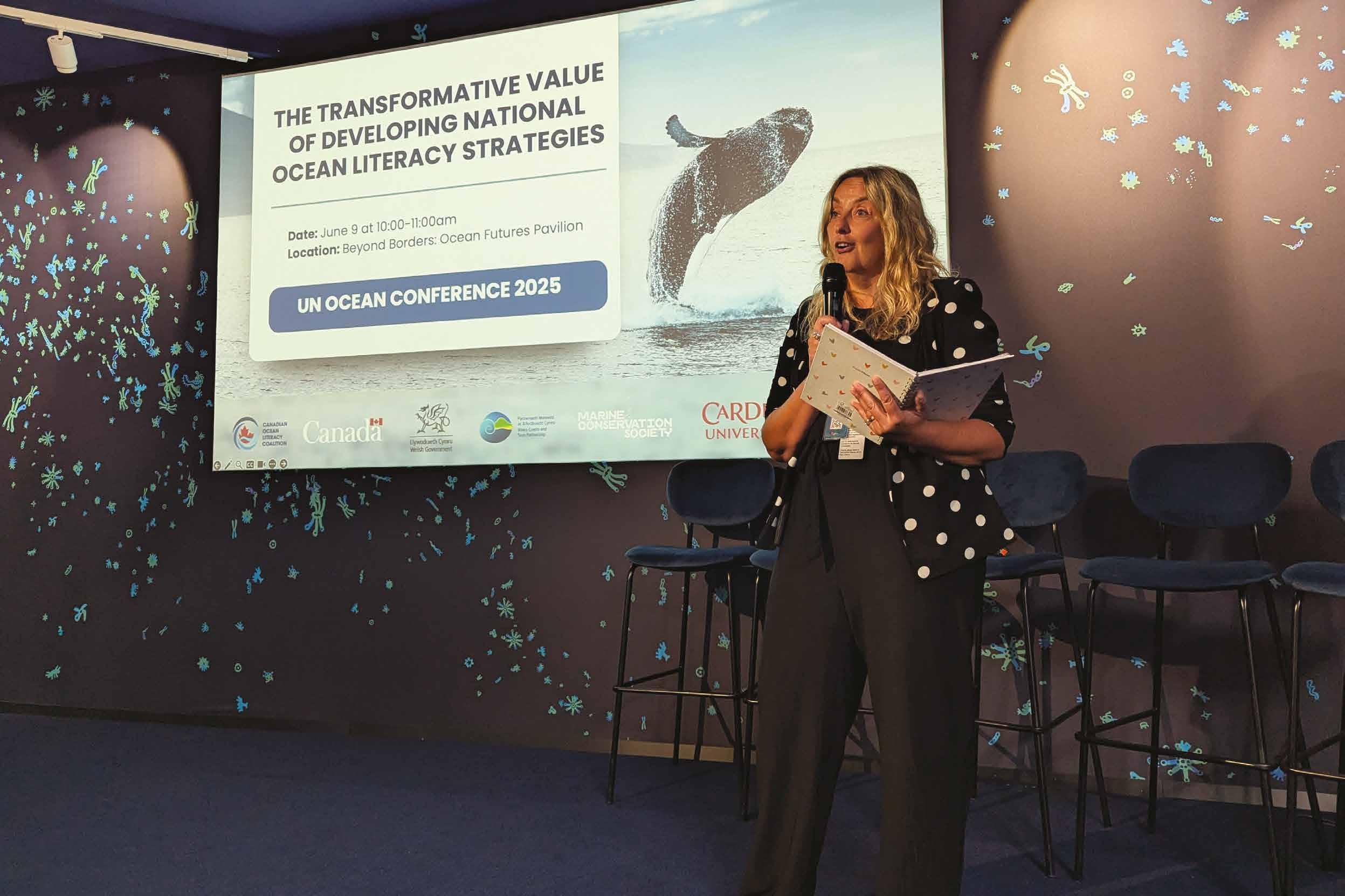
We shared these views through a range of activities at the United Nations Ocean Conference:
• We hosted two events – considering people’s behaviour and calling for global collaboration to call for an urgent need for Ocean recovery.
• We took to the stage as a contributor in five other events – developing Ocean literacy, increasing Ocean connection, sharing insights from new surveys, exploring research opportunities and developing new relationships.
• We jumped in to ask questions to raise your agenda to participants, presenters, government officials and more.
The Conference wasn’t just exciting because of our role in attending, but also the appetite for action and change across nations. Below are some of the other commitments we are excited to see turn into actions...
Ocean Literacy was a hot topic this year. We were proud to help lead the conversation by showcasing how we can become an Ocean literate society, by using all the dimensions of Ocean Literacy to foster emotional connection, inclusive education and better awareness.
We believe that a healthy Ocean leads to sustainable development, especially when integrating Ocean literacy into policy.
We were delighted that Ocean Literacy was recognised as a global priority, with the final declaration calling for countries to promote it at all levels and support lifelong learning.

There was also more commitment to funding opportunities with the launch of SEA BEYOND - a global fund to support Ocean Literacy initiatives around the world, and the One Ocean Finance initiative was unveiled, aiming to unlock funding from Ocean-based industries to invest in Ocean conservation.
Many countries committed to several new policies paving the way for stronger protections beyond national waters, plastics and impacts of human activity. As well as this, Marine Protected Areas were declared, taking another big step towards safeguarding biodiversity and building climate resilience.
It was an honour to be there - not just as the Ocean Conservation Trust, but as representatives of all who care for the Ocean, its health and your connection to it. We thank everyone who has taken part in any of our communications in the run up to the conference.
UNOC reminded us that real change happens when people connect, we still need a space for countries to meet, discuss, plan and engage to make commitments and be accountable for them. We have notes to explore, people to meet with, programmes to develop, space to influence. We will be building on what we have learnt and taking this forward for the rest of 2025 and beyond...
One of our Schools Officers, Georgia Wallis, tells us about what our Learning Team are doing to bring Ocean Literacy to the forefront of education.
Ocean Literacy is a key Ocean conservation tool and works to raise awareness about the importance of the Ocean. The seven Ocean Literacy principles educate people about our impact on the Ocean and the impact the Ocean has on us. Over time, Ocean Literacy has developed beyond knowledge and now also recognises the importance of other aspects such as awareness, attitudes, communication, behaviour and activism.
For our Learning Team here at the National Marine Aquarium, these ideas and values underpin everything that we teach. In a recent study, we found that 84% of people strongly agreed that children at school should have the chance to learn about the Ocean. So, our education programme seeks to equip young people with Ocean knowledge and develop an emotional connection to marine ecosystems, with the aim that they will be empowered to make pro-Ocean decisions going forwards. One of the ways we do this is through our workshops and we’re delighted that our team have been shortlisted as finalists for the School Travel Awards Best Education Workshop for 2025!
Learning about the Ocean not only helps conservation, but also has personal benefits which aid young people, including improved awareness of how the world around them works, potential career options and reducing ecoanxiety. Blue spaces have also been linked to improved mental health and emotional wellbeing.
The new Natural History GCSE, which will hopefully roll out in the near future, is a promising start to adding more nature-based topics into school education. But unfortunately in England, Ocean Literacy concepts are not currently integrated into the National Curriculum. Plus, things like time constraints, teacher knowledge, and funding can further reduce the opportunities children have to learn about the marine world. That’s why our Learning Team have been developing a strategy to reduce these barriers and promote higher levels of Ocean Literacy in schools!
The awe and wonder of the Ocean can be used to draw and hook learners in various curriculum subjects. From integrating Ocean story telling through English and Art, to Science and Geography linked rock pooling trips, there are numerous ways to weave Ocean Literacy into existing parts of the curriculum.
However, many teachers have expressed that they didn’t receive any training on delivering Ocean topics during their teacher training, affecting their confidence bringing it in during their careers. So, we thought that would be a good place to start! June marked the end of our Climate Roadshow outreach, funded by the Edina Trust. Following this, we delivered two paired CPD sessions, as well as a separate CPD session in conjunction with the University of Plymouth. These sessions provided an overview of Ocean Literacy for teachers and educators keen to expand their skills and knowledge.
We picture this being the beginning of more CPD events to come, possibly in the form of virtual meetings or even a podcast - the world is our oyster! Future sessions will delve into more detail about the individual principles, giving teachers the confidence to incorporate these ideas into their lessons back at school. Additionally, our team are in exciting talks about partnerships with teacher training courses at local universities, to help bridge that gap in knowledge prior to qualification.
With a curriculum review happening in the Autumn, it would be amazing if the Ocean was integrated more in the formal curriculum. But until then, it’s up to educators and teachers to incorporate Ocean Literacy where possible. With heaps of potential, we envision teacher CPD becoming an important element of our programme going forwards, helping us to achieve this. By doing this and exciting young people about marine life, we’re proudly working to inspire the next generation of Ocean advocates!

